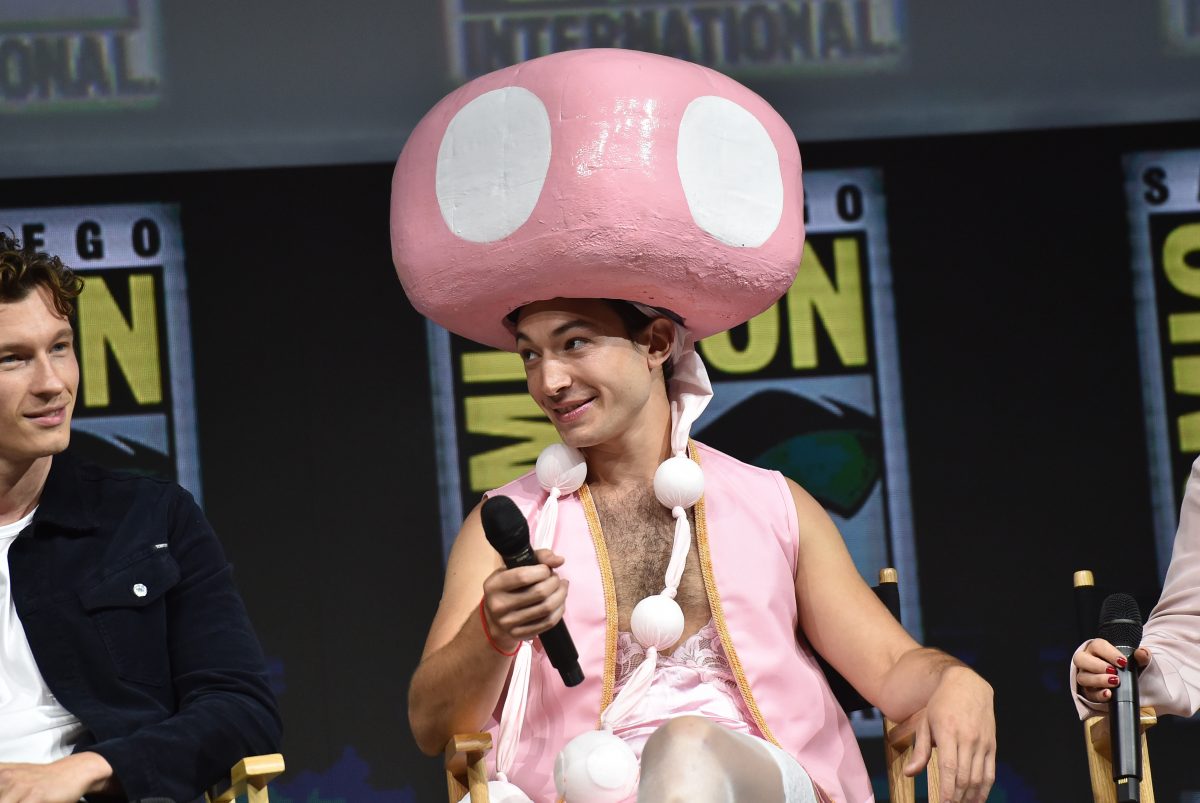Ezra Miller Is Great, but We Should Be Mad About Dumbledore’s Sexuality in Fantastic Beasts 2
Oh dear, oh dear.


I am a big fan of Ezra Miller. I might have come to Justice League for Diana Prince but I stayed for Barry Allen. So, when I read his comments concerning Fantastic Beasts: The Crimes of Grindelwald, I was a little put out. Miller came to the defense of the film, in which he plays Credence, which had come under fire after early interviews seemed to say that Dumbledore’s sexuality would not be explicit in the film.
Miller said:
“It’s a funny idea to me that every form of representation has to look the same. For me, personally, I find Dumbledore’s queerness extremely explicit in this film. I mean, all around. He sees Grindelwald, his young lover who’s the love of his life; he sees him in the Mirror of Erised. What does the Mirror of Erised show you? Nothing more than the most desperate desire of your heart. If that’s not explicitly gay, I don’t know what is.”
I hate to disagree with Miller, but that’s not entirely true. Plenty of characters have seen platonic relationships in the Mirror of Erised. True, it’s the deepest desire of your heart, but general audiences can some times be willfully unobservant when it comes to same-sex relationships unless it is spelled out. There could be audience members who are not aware of his sexuality, and therefore it will fly over their heads.
Representation does not have to look the same, but we have to be considerate of how it is portrayed. A gay character doesn’t have to be in a torrid affair to be seen as gay; that is a misconception. But they have to do something to make their sexuality clear to the audience, because audiences love to straightwash characters. If Dumbledore mentions his sexuality openly, or is seen sharing an affectionate moment with another man, then that’s a whole different ball game. If he’s just staring at an image of Grindelwald, people might willfully try to straightwash him.
Miller also praised JK Rowling, saying “People have to also take a moment and acknowledge the gift that Jo Rowling gave us. [She wrote] one of the greatest characters in literary history, one of the most beloved characters across the whole spectrum of civil society…and then, at the end of writing that series, was like, ‘Oh, yeah, and he’s gay. What? Step to me.’ She is forever a god for that.” Unfortunately, this is something I also disagree with. There is nothing brave or bold about after-the-fact representation.
Given that Dumbledore is Harry’s mentor, some might say there was not room for mentioning his sexuality to Harry (though straight characters never seem to be subject to the same “it’s inappropriate to discuss this in front of the children” complaints). But there could have been other gay characters whose sexuality is canon specific, not after the fact. Seamus and Dean could have taken each other to the Yule Ball. Parvati and Lavender could have been an item. Luna could have been gay, Neville could have been gay… really any character could have been gay. Please do not get us started on Remus Lupin. There is something almost aggressively heteronormative about Rowling pairing everyone off with someone of the opposite gender, while the only gay character is dead and his lover was a fascist murderer.
Miller pushed back at the Twitter backlash against the film, saying:
“Why don’t you wait until you see the film before you start talking shit on Twitter? Or wait to make up your own mind about something for once in your life. Do your own research. Make up your own mind. Follow your heart, and really, really investigate situations before you identify yourself and pick a side, and start throwing things at the opposition. Because that’s what’s totally screwing everything up right now. And it polarizes us. We’re all human, and there’s a lot of things we can agree on.”
First off, a lot of the Twitter backlash against Fantastic Beasts has very little to do with Dumbledore’s sexuality. It mostly has to do with casting Johnny Depp in the role of Grindelwald, because of the abuse allegations facing him. Also, people really are not happy with the Nagini reveal for a myriad of reasons. Given the information we’ve been given about the film, it is hard not to make up your mind about what’s going on. In Depp’s case, we don’t even need to see the movie.
We have done the research on the film. Maybe the film will surprise us, but given what we’ve been told, it’s hard not to make a judgement about something that matters a great deal to a lot of people. We are making up our own minds; many people have drifted away from the franchise because of Rowling’s behavior and because of the way things are panning out with Fantastic Beasts. It’s not a lack of research, we’re just judging the film on what we’ve been told about it.
So, sorry, but we’re going to have to agree to disagree. Miller is in the right to defend his projects, but we are also in the right to criticize what we’ve been told about said projects. After all, that’s the point of marketing — to sell the project to us. If we don’t like it, we’re going to say something.
(via IndieWire; Image: CHRIS DELMAS/AFP/Getty Images)
Want more stories like this? Become a subscriber and support the site!
—The Mary Sue has a strict comment policy that forbids, but is not limited to, personal insults toward anyone, hate speech, and trolling.—
Have a tip we should know? [email protected]